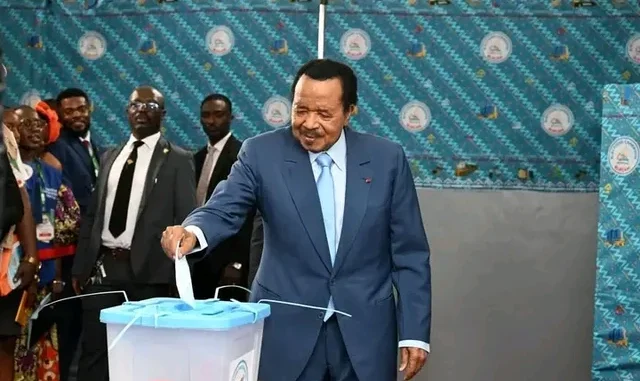
President Paul Biya of Cameroon has secured another term in office at the age of 92, extending his leadership to 43 years — one of the longest in Africa’s history.
Biya first assumed office on November 6, 1982, succeeding Ahmadu Ahidjo, Cameroon’s first president, who ruled from May 5, 1960, to November 6, 1982 before resigning on health grounds at age 58.
Ahidjo, a Muslim Fulani from northern Cameroon, handed power to Biya, a Christian from the south, who was then serving as Prime Minister. However, relations between the two later deteriorated after Ahidjo was accused of plotting a coup against Biya in 1984. Although he denied the allegation, Ahidjo was sentenced to death in absentia — a sentence Biya later commuted to life imprisonment.
SPIRITUAL SOLUTION THAT WORKS
Are you in need of spiritual guidance about your life?
Do you need a complete spiritual check-up to balance your spiritual life, your Dreams and your spiritual suspicious?
Look no further!
Consult With Trusted A highly experienced spiritual guide.
DR ADAMS ADAM
Will Guide you to achieve Success, Wealth, Healing Possessions and protection, bręakthrough. Spiritual power, healing & cleansing, Peaceful relationship. Get our natural Male Enhancement to Improved your libido, sexual performance and Enhanced fertility. Our spiritual check-up program will reveal the hidden secrets about your Life and solution. For spiritual consultation and counseling.
ON MATTERS OF THE MIND, BODY AND SPIRIT.
Call or WatsApp + 2 3 4 7 0 6 2 1 5 6 8 3 4
With god All things
LOCATED AT “ABUJA, LAGOS, OSUN
Ahidjo eventually died in exile in Dakar, Senegal, at age 68.
With Biya’s continued rule, Cameroon maintains its reputation for long-serving leaders, as Ahidjo himself led the country for 22 years.
President Paul Biya addressing Cameroonians
Cameroon, once a German colony, was divided between France and Britain after World War I. The French-administered part gained independence on January 1, 1960, while the British-administered part followed on October 1, 1961, forming the Federal Republic of Cameroon.
During a UN-supervised plebiscite on February 11, 1961, British Northern Cameroon — mainly Muslim — voted to join Nigeria, while British Southern Cameroon — largely Christian — chose to unite with Cameroon.
As a result, Buea and Bamenda became part of Cameroon, while Northern Cameroon integrated into Nigeria’s Adamawa, Borno, and Taraba States.